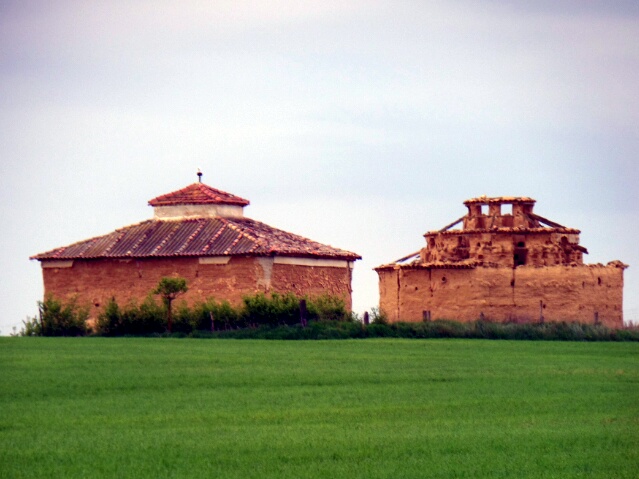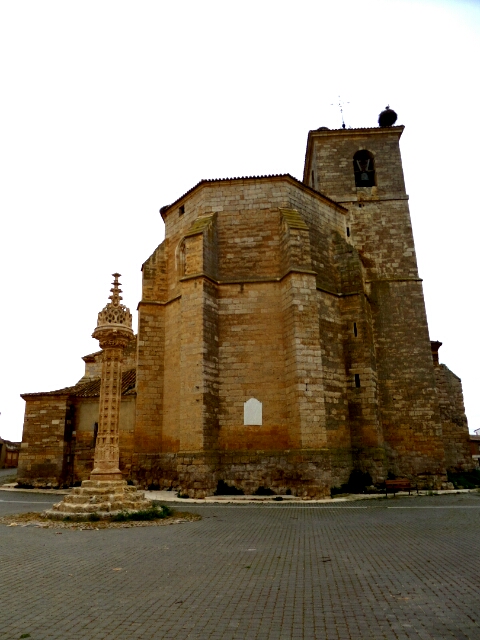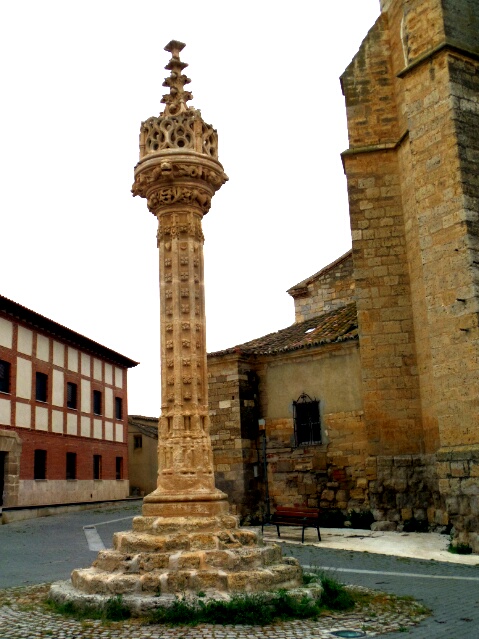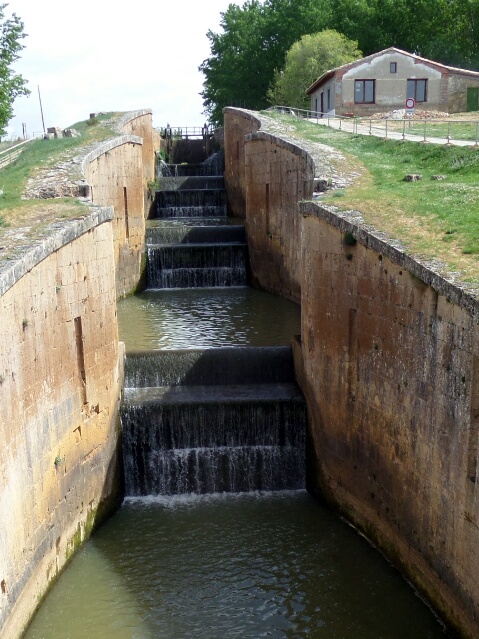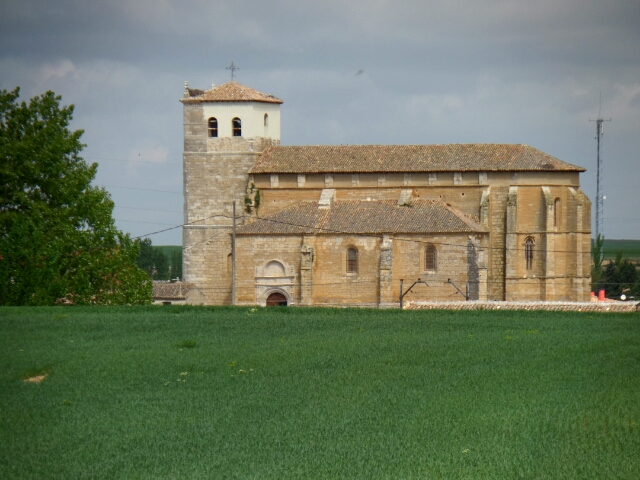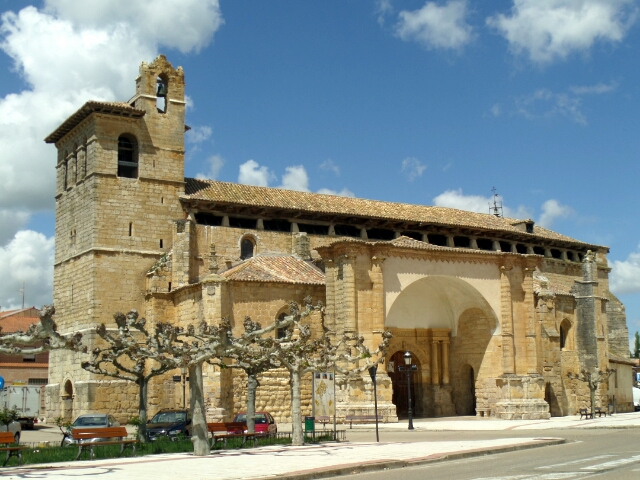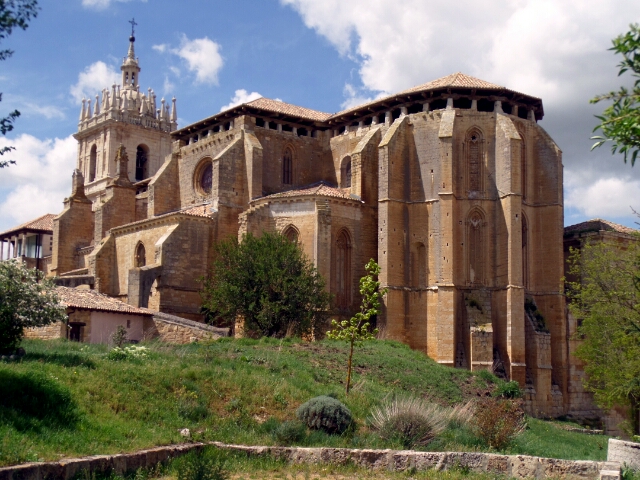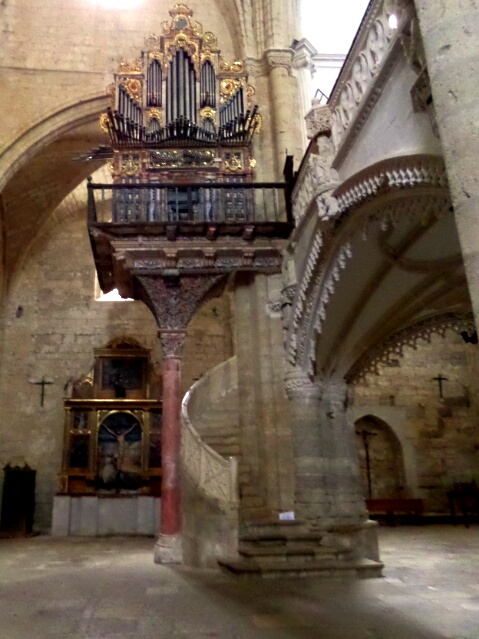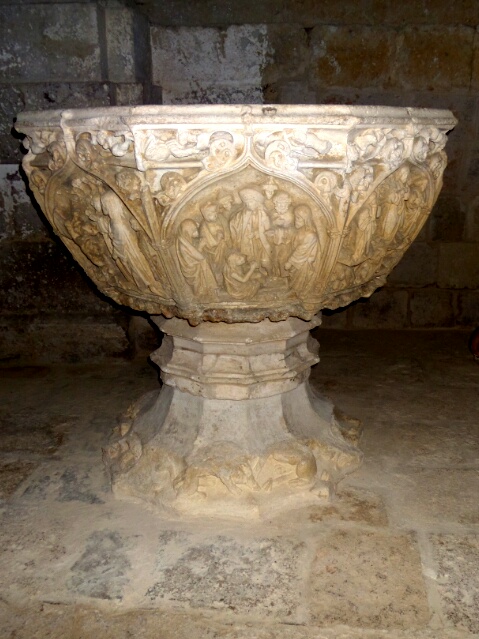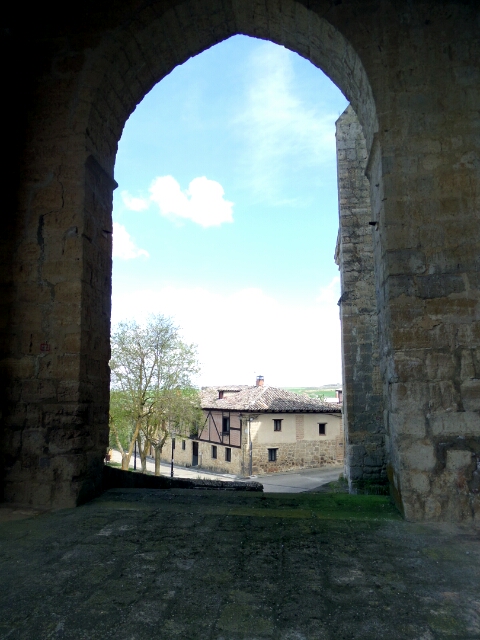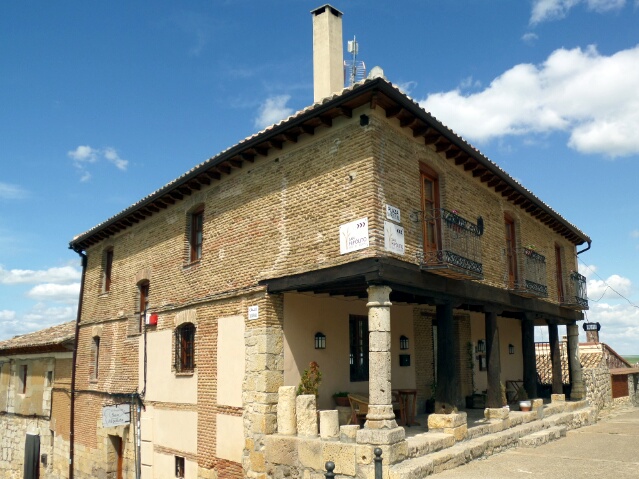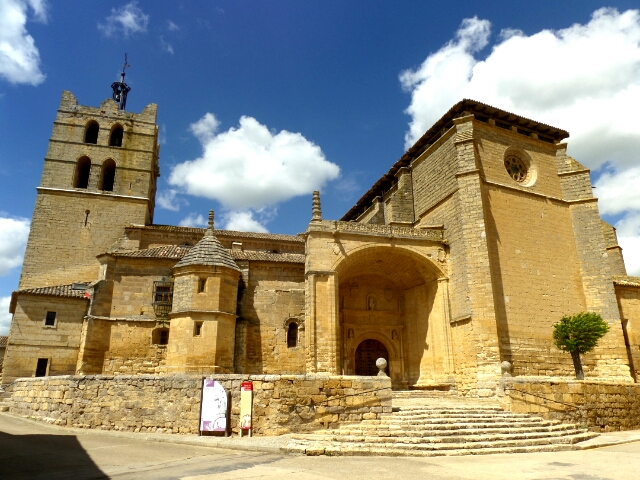Day 33 Thu 24 Apr
Another cool overcast day, another quality dirt track. There were hordes of pilgrims yesterday, yet today we traveled all alone along the Camino. Boadilla del Camino has a magnificent Rollo de Justicia. It is a symbol of the jurisdictional independence of the area, granted by the King in the 15th century. Prisoners were sometimes chained to the Rollo. Also in this area are many dovecotes, providing fertilizer and dinners for the farmers. Soon after, we walked along the tow path of the Canal de Castilla for 3 kilometers to Frómista. The canal was built in the 18th century, runs over 200 kilometers and was used until 1959 to export grains from the plains of Castilla. Only14 kilometers for us today.
Whilst we were having lunch in Frómista, we were chatting to the owner of the cafe. She said that the very best churches in the whole area were nearby, within 10 kilometers and offered to drive us. She was right! Churches in this region are unique; they have raised roofs to allow airflow for temperature control; the few windows are high up as a defensive measure, but still arranged to light inside. The huge San Hipólito el Real, 14th century Gothic, in Támara symbolizes the power, strength and majesty of the old Spain. We were lucky enough to be shown around inside by one of the villagers. In Santoyo, the beautiful San Juan Bautista , Romanesque in origin was completed in Gothic style. Both these villages are full of history and the Camino used to run through them. Now they are starting to decay, a pity.

